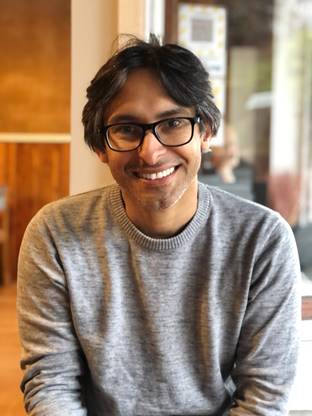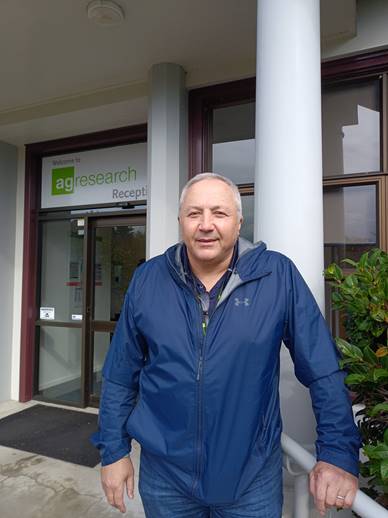LEARN and GRASS Awards, New Zealand
The LEARN and GRASS awards were put on hold indefinitely in 2020. Please direct any queries about potentially similar future opportunities to the GRA Secretariat.
The Livestock Emissions Abatement Research Network (LEARN) was New Zealand’s competitive fellowship programme under the GRA. Since 2009, 22 early career scientists from 11 developing countries received LEARN awards in the area of livestock emissions mitigation research.
The Global Research Alliance Senior Scientist (GRASS) awards provided short term exchange opportunities for senior scientists from New Zealand and other GRA member countries to encourage global research collaboration. Since 2009, 14 recipients from 8 countries received awards.
Examples of past GRASS awardees

Associate Professor Sergio Morales is a microbial ecologist at the University of Otago who’s research is concerned with microbial community assemblies rules; what microbes are where, why and what are the repercussions for this, specifically for biogeochemical cycles. He uses environmental model systems with a primary focus on New Zealand pasture soils and takes advantage of time series to understand community assembly processes and their relevance on biogeochemical cycling. His work has demonstrated that unaccounted for microbes and pathways control greenhouse gas emissions.
Dr. Morales’s GRASS award was based on work elucidating the ecological rules controlling community responses to N deposition [in collaboration with NZ based and international partners]. This research is leading the way with an innovative approach using whole microbial community data and ecological theory.
As part of his GRASS award Dr. Morales visited new and longstanding collaborators to further develop new initiatives integrating microbiology into greenhouse gas research. He used his time to coordinate ongoing work in both completed and currently active projects where he leads the microbiology portion of multidisciplinary and international projects focused on C sequestration and greenhouse gas mitigation from soils. These projects include collaborators across institutions in NZ, Germany, Finland, France, Ireland, Chile, Argentina, Spain, Norway, Portugal, Ethiopia, Indonesia, Demark, and Sweden. He also used his travel to explore new research opportunities and present his work.

Dr. Alexander Hristov is a Distinguished Professor of Dairy Nutrition in the Department of Animal Science at The Pennsylvania State University. He has a B.S. a Ph.D. in Animal Nutrition from his native Bulgaria. Hristov has worked as a research scientist at the Institute of Animal Sciences, Kostinbrod, Bulgaria, the USDA-ARS Dairy Forage Research Center in Madison, Wisconsin and the Agriculture and Agri-Food Canada Research Center in Lethbridge, Alberta. He was on the Faculty at the Department of Animal and Veterinary Science, University of Idaho from 1999 to 2008 and has been at Penn State since 2008. His main research interests are in the areas of protein and amino acid nutrition of dairy cattle and mitigation of nutrient losses and gaseous emissions from dairy operations. As past Chair (and current co-Chair) of the Network on Feed and Nutrition in Relation to Greenhouse gas Emissions (an activity of the Livestock Research Group within the Global Research Alliance on Agricultural Greenhouse Gases), Alex has led multinational projects aimed at developing region-specific databases for prediction and mitigation of enteric methane and nitrogen emissions from ruminants. Alex is past division editor of the Ruminant Nutrition section, J. Anim. Sci. and Associate Editor of the Can. J. Anim. Sci., and current J. Dairy Sci. Editorial Board member and Associate Editor for the J. Agric. Sci. (Cambridge). He is a member of the Feed Composition Committee of the U.S. National Animal Nutrition Program and the Scientific Advisory Board of the European Joint Programming Initiative on Agriculture, Food Security and Climate Change (FACCE-JPI). Alex initiated and led the development of the world’s first Dairy MOOC (Massive Open Online Course) with a current enrolment of over 49,000 (https://www.coursera.org/
Under his GRASS award, Dr. Hristov travelled to New Zealand for three months to progress discussions on using in vitro systems to assess methane emissions from different feeds, and to share experiences from the Penn State University (PSU) with AgResearch teams.
